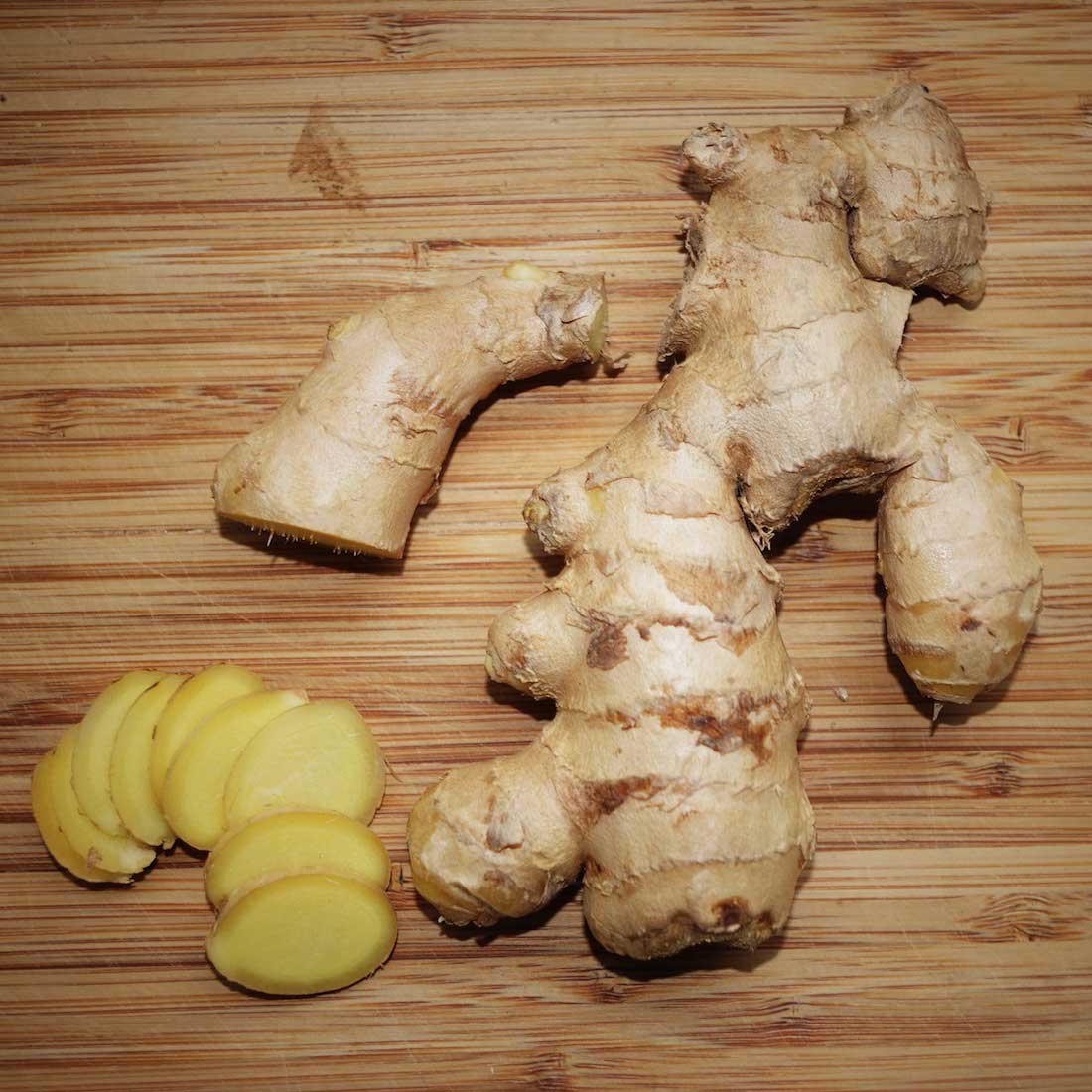Eating your medicine and enjoying it actually is possible. For instance, take ginger.
For thousands of years, the Chinese and South Asians have incorporated nutrient-rich foods in their diets. Ginger, for example is used in many Chinese dishes from stir-fries to steamed fish. The spicy kick of ginger is also featured in many South Asian dishes. Here’s why you should eat more ginger.
Health Benefits of Ginger
Well, for one thing, ginger is delicious. Try adding ginger to a spicy dish.
On top of flavor, ginger is a powerful anti-inflammatory1. China and India have used ginger for thousands of years as medicine. Here are just a few of ginger’s health benefits:
1. Fight inflammation
Ginger is a power anti-inflammatory. This is one of the most important reasons why I recommend adding ginger to your diet.
Here’s some background on inflammation. It’ll help explain why ginger is important.
We need acute inflammation for many healing responses in the body. Acute inflammation is a normal response to injuries. Here’s the but: chronic inflammation isn’t normal. That’s the type of inflammation that a lot of us suffer from. Chronic inflammation is responsible for many damaging effects of common diseases.
You can have chronic inflammation because of many reasons. Not enough sleep, a poor diet, not enough exercise, to much sun exposure, are a couple of examples. Generally, the better you eat and the healthier your lifestyle is, the less inflammation you will have.
The best way to reduce inflammation is to eat well. Certain foods are anti-inflammatory. That means they either fight the substances produced during inflammation or prevent inflammation from happening in the first place. Ginger is a powerful anti-inflammatory. In fact, reducing inflammation is actually one of the traditional uses of ginger. In Western research, we’ve found that ginger inhibits the enzyme COX22, a substance that increases inflammation.
For just reducing inflammation alone, I strongly recommend that you add ginger to your diet.
2. Cure indigestion
If you feel gassy, bloated, or you’re lacking appetite, have some ginger. Drink it as tea. Ginger can also cure stomach upsets and pain.
3. Reduce the risk of heart attacks
Some research tells us that ginger may reduce blood pressure. There is some evidence that ginger lowers cholesterol3 and prevents blood clotting. Both reduce your risk of heart attacks and strokes. There’s enough evidence that I recommend you add ginger to your diet. It will likely help.
Ginger Side Effects
The risk of side effects from ginger is much lower than from common prescription drugs like NSAIDs and the other painkillers. I’d much rather prescribe ginger to my patients than a drug.
Side effects from ginger are rare4. You’d have to be taking a large amount of ginger, more than even with adding ginger to flavor your diet, to have side effects. If you do have side effects, they tend to be quite mild. I have heard of mild heartburn, diarrhea, and mouth irritation from eating large amounts of ginger. Most of us won’t come close to eating too much ginger.
Having said that, here are some precautions:
If you take blood-thinning medication: Ginger reduces the clotting of blood5. That’s usually a good thing because it lowers the risk of blood clots. If you already take blood thinners, though, talk to your doctor. Some examples of blood-thinning drugs are warfarin (Coumadin), clopidogrel (Plavix), and aspirin.
Diabetes: May lower blood sugar and cause hypoglycemia (low blood sugar).
High blood pressure medication: May lower blood pressure too much and cause an irregular heartbeat.
If one of the above apply to you, talk to your doctor.
Children under the age of 2: Talk to your doctor before feeding ginger to young children.
Chew on this
Changing your diet and lifestyle is the most powerful step you can take to improve your health.
On the internet and many health blogs, there is a tendency to exaggerate the health benefits of certain foods. Ginger is one of of those foods. Ginger isn’t a silver bullet for any chronic diseases, but eating it along with other good foods and having a healthy lifestyle are proven strategies for improving your health.
Have you added ginger to your diet? Share you story with us in the comments!




